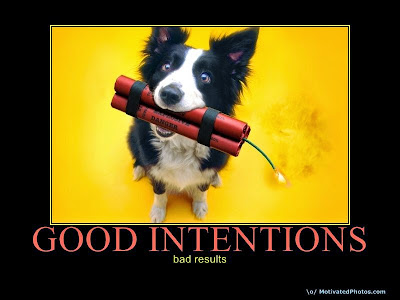O jornal Público de ontem trazia um interessante artigo com o título "A pergunta é: como aumentamos os salários?"".
Claro que uma tentativa de resposta há anos que é esboçada neste blogue. Mergulhemos primeiro no artigo:
"A região norte é a mais exportadora do país. Mas medir o pulso ao estado da nação a partir desse retrato é esquecer que o Norte também é a região mais pobre do pais. O que está a falhar? [Moi ici: Já abordei o tema em Por que é então uma das [regiões] mais pobres de toda a UE?]
Paula, 47 anos, gaspeadeira, Santa Maria da Feira. Trabalha há 32 anos na indústria do calçado, mas há um mês ficou no desemprego, "A meu ver, o que falha é que as empresas tiram o lucro todo para elas. Estávamos a fazer sapatos que chegam a ser vendidos por 800 euros. Isso é o que cada um de nós ganhava de salário num mês." [Moi ici: Recordo as contas deste postal Quantas empresas? (parte III) ]
O preço do sapato na loja não reflecte necessariamente a receita da empresa que o produz, contrapomos. "Mas a empresa ganha mais do que aquilo que nos paga", responde Paula, certa de que a riqueza gerada pelos trabalhadores "é mal distribuída". [Moi ici: A distribuição é a possível, o problema é o que o valor criado é muito limitado. A situação só melhorará quando as empresas existentes forem substituídas por empresas com outros modelos de negócio] Paula ganhava 914 euros iliquidos. Feitos os descontos, levava para casa "800 e pouco".
...
O que dirão os empresários perante a mesma questão. Por que razão a região mais exportadora e industrializada é também a mais pobre, senhor Albano Miguel Fernandes, da AMF Shoes, em
Guimarães?
"Está a faltar valor acrescentado às exportações. A maioria das empresas de calcado) trabalha em regime de private label, 'vendendo' minutos do seu tempo ou das suas máquinas", responde. [Moi ici: O que o engº Albano está a falar é ... do modelo de negócio. Só que no mesmo sector de actividade, nem todas as empresas conseguem dar esse salto, nem existe mercado para todas elas se derem esse salto]
...
"Vender minutos também é o modelo de muitas empresas noutras indústrias, como no téxtil. "A competição é feroz e por isso dá origem a uma baixa remuneração para as empresas, o que tem por consequência um poder muito limitado para remunerar os seus colaboradores. Estamos também dependentes de grandes multinacionais, que direccionam os seus centro de custos [para] países com sistemas mais competitivos do que o português", [Moi ici: Aqui há que ter cuidado com o uso da palavra competitividade, recordar o Uganda e os quadrantes do primeiro artigo citado lá em cima]
...
"A pergunta é: como aumentamos os salários dos portugueses?" José Teixeira, presidente do grupo DST, de Braga, está a falar há cerca três minutos. Até chegar à questão que elegeu como crucial, o gestor invocou "o novo iluminismo de que a Europa precisa" e que "tem de ser agarrado", porque pressupõe "outro modo industrial, social, de relações dos trabalhadores com os accionistas, de usar recursos".[Moi ici: O que ele não diz é que são precisas outras empresas... percebem a enormidade disto? As empresas podem ser mais eficientes, podem ser melhor comercialmente e extrair mais valor, mas originar mais valor... isso só a produzir outras coisas com outro modelo de negócio. Volto a Larreché e aos Flying Geese e o exemplo do calçado em St. Louis, tão rico que pagou uns Jogos Olímpicos de Verão em ... 1904]
...
A empresa [Moi ici: Riopele] continua relevante, apesar de mais pequena. Exporta directamente 98% da sua produção, emprega 1102 pessoas e em 2022 fixou o salário de entrada em 780 euros, 20 euros acima do salário mínimo que, entrou em vigor no inicio de 2023. As despesas de inovação e desenvolvimento equivalem a 20% da receita anual, afiança. Quem conheça a indústria sabe que é uma percentagem que mete respeito. [Moi ici; Eu se dirigisse a empresa até teria vergonha de divulgar estes números. Torrar 20% da receita anual e não conseguir gerar valor acrescentado é um sinal claro de falhanço. O que interessa são os resultados, não o que se gasta. Fizeram-me lembrar a Raporal] Se tivesse voz no debate do estado da nação, a sua mensagem seria: aliviem o IRS dos trabalhadores, isentando os salários até 1200/1300 euros."
Agora voltando atrás no artigo sublinho:
"Quando me chamarem, vão-me propor o salário mínimo. Para quem ganhava 914 euros, não é nada motivador. Vão querer pagar-me o que se paga a um aprendiz. Não é este o futuro que eu desejo para as minhas filhas."
Recordo que em Maio passado escrevi aqui:
"No ECO o meu lado cínico foi despertado em "Calçado entra em 86 escolas para atrair jovens para as fábricas". Como é que o marketing abalroará a experiência que os jovens têm com os familiares que trabalham ou trabalharam no sector do calçado?"
Sublinho: Como é que o marketing abalroará a experiência que os jovens têm com os familiares que trabalham ou trabalharam no sector do calçado?
Como se aumentam os salários? A minha resposta amedronta os incumbentes, sobretudo as associações patronais:
- Deixem as empresas morrer! (Não esquecer Spender)
- Criem condições para que empresas acima na cadeia de valor instalem-se no país e promovam um spill-over de valor acrescentado.














%2006.21.jpeg)












